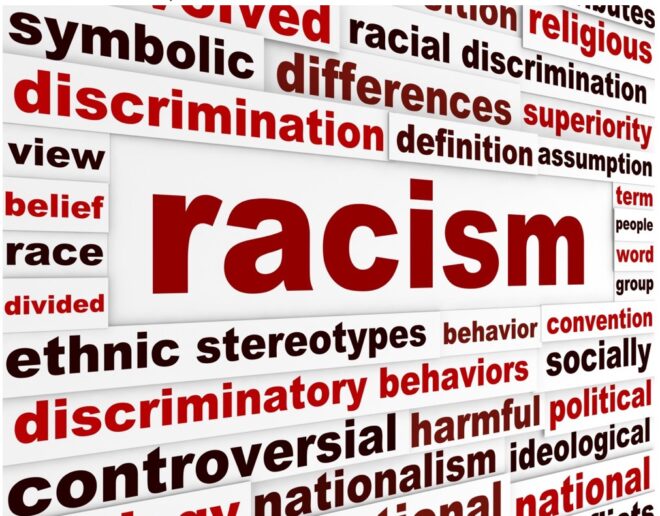
Introduction
Diversity, Equity, and Inclusion (DEI) initiatives have emerged as critical frameworks aimed at addressing systemic inequalities within societies. These initiatives are designed to promote diverse representation, equitable opportunities, and inclusive environments across various sectors, including workplaces and educational institutions. Globally, DEI encompasses a range of strategies, including training programs, hiring practices, and policies that seek to dismantle barriers based on race, gender, ethnicity, disability, and other factors.
In recent years, particularly in the United States, the political landscape has seen significant pushback against DEI initiatives. The Trump administration’s executive orders in 2025 aimed at dismantling federal DEI programs have ignited intense debate, framing DEI as “discriminatory” and prompting many corporations to retreat from their commitments to these initiatives. However, this essay posits that abolishing DEI would only serve to reinforce a status quo that privileges already advantaged groups – predominantly white, male, affluent individuals from established networks – while perpetuating cycles of exclusion for marginalised communities.
This argument is particularly relevant in the Australian context, where the nation’s identity is deeply intertwined with migration and multiculturalism. With over 30% of its population born overseas and a complex history of Indigenous dispossession, Australia faces unique challenges related to equity and inclusion. DEI initiatives in Australia align with federal laws such as the Sex Discrimination Act 1984 and the Racial Discrimination Act 1975, which impose a “positive duty” on employers to prevent discrimination. As we enter 2025, amidst a global backlash influenced by US politics, Australian employers are grappling with the future of DEI. However, surveys indicate strong support for DEI initiatives, with only 7% of workers expressing strong opposition and 90% of companies embedding DEI programs into their organisational frameworks. This contrasts sharply with the US, where mentions of DEI in corporate reports have dropped by 72%. In Australia, multiculturalism is considered “in our DNA,” making DEI essential for attracting talent and fostering innovation.
The potential abolition of DEI initiatives in Australia poses significant risks, particularly for Indigenous peoples, women, and ethnic minorities. This essay will explore the benefits of DEI in Australian workplaces and education, the consequences of its removal, the criticisms levelled against DEI, and why refinement – not abolition – is the necessary path forward.
The Positive Aspects of DEI: Fostering Innovation, Equity, and Growth in Australia
DEI initiatives in Australia have proven to be transformative, driving economic benefits, enhancing workplace culture, and addressing historical injustices. Far from being a fleeting trend, DEI is embedded in organisational strategies, yielding measurable outcomes in productivity, innovation, and employee wellbeing. As of 2025, amid economic pressures such as inflation and global uncertainty, the role of DEI in building resilient, inclusive teams is more critical than ever.
In Australian workplaces, DEI promotes innovation by leveraging the nation’s diverse population. With multiculturalism as a core aspect of its identity, DEI ensures that teams reflect Australia’s demographic mosaic, leading to creative problem-solving and broader market reach. Research from the Diversity Council Australia (DCA) indicates that inclusive teams are ten times more likely to innovate, eight times more effective in collaboration, and four times more likely to achieve positive business outcomes. For instance, companies like Telstra and Qantas have integrated DEI into their recruitment processes, resulting in diverse leadership that drives revenue growth. A 2025 report from King & Wood Mallesons highlights that DEI minimises legal risks under the Respect@Work framework, which mandates the prevention of sexual harassment and discrimination, while simultaneously boosting employee retention and psychosocial safety. This is particularly vital in Australia, where gender pay gaps persist at 19%, and Indigenous employment rates lag behind non-Indigenous rates by 20%. DEI initiatives address these disparities through targeted programs, such as flexible work policies that support women and caregivers, which have been shown to reduce turnover by up to 30% in sectors like finance and technology.
Moreover, DEI enhances employee morale and productivity. Trends in 2025 indicate a growing integration of mental health considerations into DEI initiatives, with programs such as transparent pay structures and tailored benefits (e.g., cultural leave for Indigenous employees) fostering a sense of belonging among employees. The Australian Human Resources Institute (AHRI) reports that organisations focused on DEI experience higher job satisfaction, particularly among ethnic minorities, who represent 24% of the workforce but often face significant barriers. For example, the federal government’s DEI Strategy 2025-28 emphasises building trust through fair workplaces, supporting diverse groups such as Aboriginal and Torres Strait Islander peoples, migrants, and LGBTQ+ individuals. This not only complies with anti-discrimination laws but also drives economic participation: DEI in healthcare diversifies service providers, improving outcomes for multicultural patients and reducing biases.
In the realm of education, the positive impacts of DEI are evident in the creation of inclusive curricula and support systems for underrepresented students. Australian universities, such as the University of Sydney, have utilised DEI to diversify faculty, leading to more representative research and mentorship opportunities. This prepares students for a globalised workforce, where diverse teams are more likely to produce innovative breakthroughs. For Indigenous students, DEI initiatives such as scholarships and cultural support have resulted in a 15% increase in enrolment since 2020, addressing historical exclusions. Without DEI, elite institutions risk reverting to homogeneity, where privileged backgrounds dominate admissions processes.
Economically, DEI delivers substantial returns. A 2025 analysis by Future Leadership asserts that properly implemented DEI is “competitively advantageous,” with inclusive companies outperforming their peers by 10-15% in revenue. In Australia, where DEI initiatives focus on gender, Indigenous, and ethnic equity, they counter skill shortages by broadening talent pools. For instance, programs targeting Pacific Islanders and Asian migrants have enhanced workforce participation in sectors such as IT and engineering. Public sentiment supports this notion; discussions on social media platforms in 2025 highlight DEI’s role in fostering safe workplaces, with users expressing broad approval for these initiatives. Even amid the backlash influenced by US politics, Australian experts argue that DEI is evolving rather than disappearing, necessitating a reinvigoration of strategies for 2025.
The benefits of DEI extend beyond individual organisations to societal cohesion. In a country engaged in reconciliation efforts for Indigenous peoples, DEI fosters understanding, reduces discrimination, and promotes unity. Corporate Diversity Pathways has noted that DEI unlocks business potential through tailored strategies that address specific community needs. Overall, DEI in Australia is not only an ethical imperative but also a pragmatic approach that drives growth while addressing longstanding inequities.
How Abolishing DEI Reinforces the Status Quo Favouring the Privileged in Australia
The potential abolition of DEI initiatives would serve to entrench systemic biases in Australia, where historical privileges disproportionately favour white, Anglo-Australian men from urban, affluent backgrounds. Without DEI, barriers for marginalised groups would persist, allowing “homogeneity as the norm” to dominate opportunities. This reinforces a status quo rooted in colonialism, migration policies, and entrenched gender norms, limiting access for Indigenous Australians, women, ethnic minorities, and individuals with disabilities.
In workplaces, the removal of DEI would exacerbate existing inequalities. Australia’s anti-discrimination laws impose a positive duty on employers to eliminate harassment and discrimination, but without DEI, compliance risks would rise, potentially leading to an increase in lawsuits and unsafe work environments. For Indigenous peoples, who already face employment rates 20% below the national average, DEI programs that promote targeted hiring are crucial; scaling back these initiatives could devastate representation, as warned by experts. The actions taken by the Trump administration in the US may ripple into Australia through multinational corporations, but the local commitment to multiculturalism resists full abolition. However, partial retreats from DEI could limit talent pools and ultimately hinder innovation.
In the education sector, the impact of abolishing DEI would be profound. DEI initiatives are essential for diversifying curricula and supporting equity for ethnic and Indigenous students. The abolition of these programs risks creating an “economic and educational disaster,” erasing the progress made toward justice and equity. Australian universities rely on DEI to ensure inclusive admissions processes; without these initiatives, elite educational spaces would favor privileged applicants, ignoring barriers such as rural isolation or language challenges faced by migrants. For women, forecasts for 2025 warn that shifts against DEI could threaten gender equality, with technological advancements amplifying existing biases.
The broader societal consequences of abolishing DEI could lead to increased division and polarisation. The pushback against DEI, fuelled by US political rhetoric, could normalise exclusionary practices, as evidenced by social media discussions claiming “discrimination against white Australians.” Such narratives overlook the fact that DEI initiatives are designed to correct historical disadvantages rather than create new forms of discrimination. Abolishing DEI would sustain unequal outcomes, taking centuries to close gaps without proactive intervention.
Acknowledging Criticisms of DEI in Australia
While the positive aspects of DEI are substantial, it is essential to acknowledge the criticisms that have emerged in Australia. The backlash against DEI mirrors global concerns, with some viewing these initiatives as controversial and potentially unfair to majority groups. Critics argue that DEI may disadvantage white men, labelling it as “reverse discrimination.” Surveys indicate a rise in employee opposition, with many expressing discomfort in corporate settings regarding DEI initiatives.
Implementation flaws also exist; DEI can sometimes be superficial, focusing on quotas rather than genuine inclusion, which can lead to resentment among employees. Additionally, the costs associated with DEI training and roles can be significant, raising questions about the return on investment. In 2025, scrutiny inspired by US debates may challenge DEI’s alignment with Australian law, potentially creating pitfalls for organisations. Critics also contend that DEI politicises workplaces, drawing from international debates where DEI is perceived as divisive.
However, these criticisms often overlook the evolution and benefits of DEI initiatives. Rather than advocating for abolition, the focus should be on refining DEI strategies to ensure they are effective and inclusive. This could involve implementing data-driven targets and fostering open dialogues about the importance of diversity and inclusion in the workplace.
Conclusion
In conclusion, abolishing DEI initiatives in Australia would reinforce a privileged status quo that undermines equity for marginalised groups while diminishing innovation and social cohesion. The positive impacts of DEI – enhanced performance, improved employee wellbeing, and increased fairness – far outweigh the criticisms, which can be addressed through strategic refinement rather than complete abolition. Policymakers and organisational leaders should work to strengthen DEI initiatives, integrating them with legal obligations to create a more inclusive and equitable future for all Australians.
By embracing DEI, Australia can continue to build a society that values diversity, fosters innovation, and promotes social justice, ensuring that all individuals have the opportunity to thrive.



